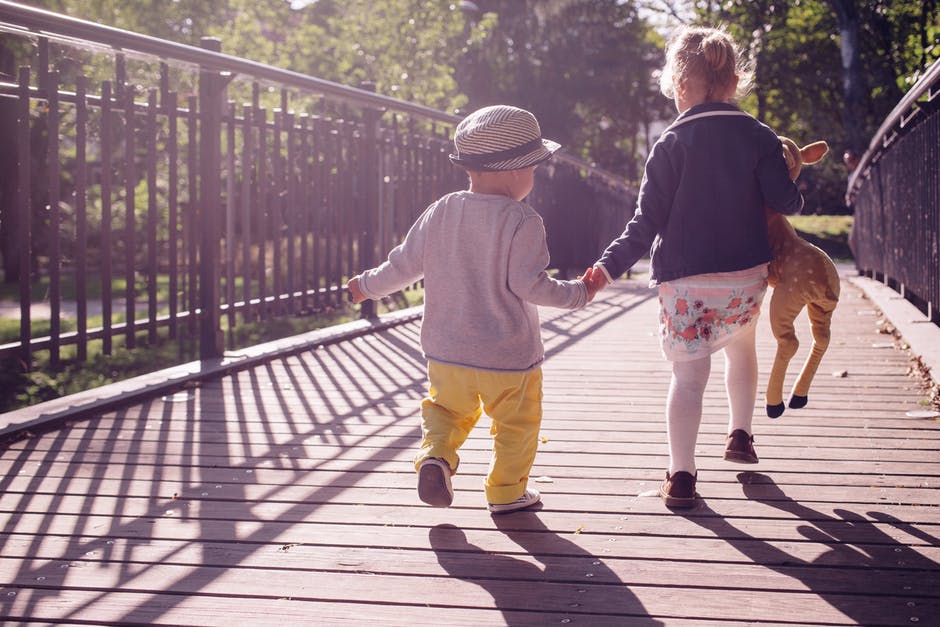The Importance Of Responsibility And How To Teach It To Your Children
Jenny Holt, a freelance health writer for a number of health sites and magazines sent us the following articles to share them with our readers.
CYBERULLYING – THE COMPLETE RESOURCE GUIDE
CREATING SPACES THAT ARE ADHD- FRIENDLY FOR KIDS
MOVING HOUSE: HOW TO MAKE MOVING EASIER ON YOU AND YOUR CHILD
HELPING CHILDREN RIDE THE STORM
THE POWER OF ART FOR ALL CHILDREN
BENEFITS OF PETS FOR KIDS WITH LEARNING DIFFICULTIES
SPECIAL NEEDS GARDENING: SOWING SEEDS ON MANY LEVELS
HELPING YOUR YOUNG CHILD DEAL WITH ECZEMA
THROWING AN INCLUSIVE BIRTHDAY PARTY FOR A CHILD WITH ADHD
SAFEGUARD YOUR CHILD’S LUNGS BY ASTHMA PROOFING THEIR BEDROOM
THE IDEAL ENVIRONMENT FOR YOUR HOMESCHOOLED CHILD
EDUCATING KIDS ABOUT ORTHODONTICS
DEALING WITH CHILDHOOD CANCER DIAGNOSIS IN YOUR SPECIAL NEEDS CHILD
HOW TO BUILD CHILDREN’S CONFIDENCE BY TEACHING THEM CLOTHES MAKING
HOW TO INTRODUCE MEDITATION TO YOUR KIDS
GETTING YOUR CHILD INVOLVED IN A PENPAL PROGRAM
Thanks Jenny!
The Importance Of Responsibility And How To Teach It To Your Children
Parenting that involves little to no rules and expectations tends to result in children who are unhappy, are not able to self regulate, and don’t do as well at school, according to Dr. Kevin Crowley, a psychologist at the university of South Wales. This is why teaching responsibility is an important part of a comprehensive education, whether your child attends public school, or is engaged in a homeschool curriculum. Academic education happens largely in a school environment, but it is often the parent’s job to teach their children to become effective, kind, and successful adults. In a world where children are spending more time in front of screens and less time learning to be independent, intentionality is increasingly important when it comes to teaching children responsibility.
The Importance Of Responsibility
Children who are given various chores and responsibilities become adults who are happier, healthier, and more independent. This is supported by a Harvard study that spans over 75 years. Accepting responsibility within the home when it comes to chores, and other family related tasks can also help children to learn how to take responsibility for themselves. Dr. Jordan B. Peterson believes that taking responsibility for oneself is the true path to fulfillment in life. He believes that the responsibility of happiness lies solely within oneself and that this is necessary in order to make it through life’s difficulties. This further supports the idea that teaching children responsibility will lead them to a life of happiness and independence.
Early Foundations Of Responsibility
Ninety percent of a child’s brain has already been developed by the age of five, making those first years the most crucial in shaping the people they will become. Children can begin to learn responsibility as young as preschool age, allowing them to build a strong foundation to rely on. Children this young can learn to be responsible for their actions as they clean up after the messes they make, carry their dishes to the kitchen and put on their own shoes and socks. Receiving praise after they complete these simple, but necessary tasks will help them to develop a sense of accomplishment when they take responsibility for themselves. Preschool age is also when children start to develop a sense of empathy. Teaching children that their actions and words can have an effect on other people, and helping them learn to take responsibility when they hurt someone is a crucial part of this developing empathy, and will continue to be beneficial as they get older.
How To Foster Responsibility And Its Impact On Older Children
As children get older and their lives begin to involve more complicated relationships and a generally more busy life, a foundation of responsibility is even more important. Learning responsibility in relationships, school work, and their own actions is important to help them develop into well rounded adults. Giving older children chores that help the family teaches them the importance of each person providing an important contribution to the family unit, both now and in their future. As children get older, they can take on more daily responsibility for themselves, such as making their bed and getting themselves breakfast, as well as tasks that benefit the whole family, such as loading the dishwasher, vacuuming and even helping with meal preparation. Research also suggests that adolescents effectively develop responsibility through participation in leadership and other types of programs in which trusted adult leaders set high standards of behavior and work.
Participating in daily chores helps to provide children with vital life skills that they will need as adults, but chores also help to foster a sense of responsibility in children. Learning to take responsibility for their own hygiene, self care, and actions should be an important aspect of growing up that will help your children to become the happiest, healthiest and most self sufficient adults they can be.
Kidsinco Related Playscripts:
CLICK HERE TO READ KIDSINCO COMPLETE LIST OF PLAYSCRIPTS
Thanks for Visiting Kidsinco Free Playscripts for Kids!
Tags: children, chores, education, empathy, parents, responsibility, school



